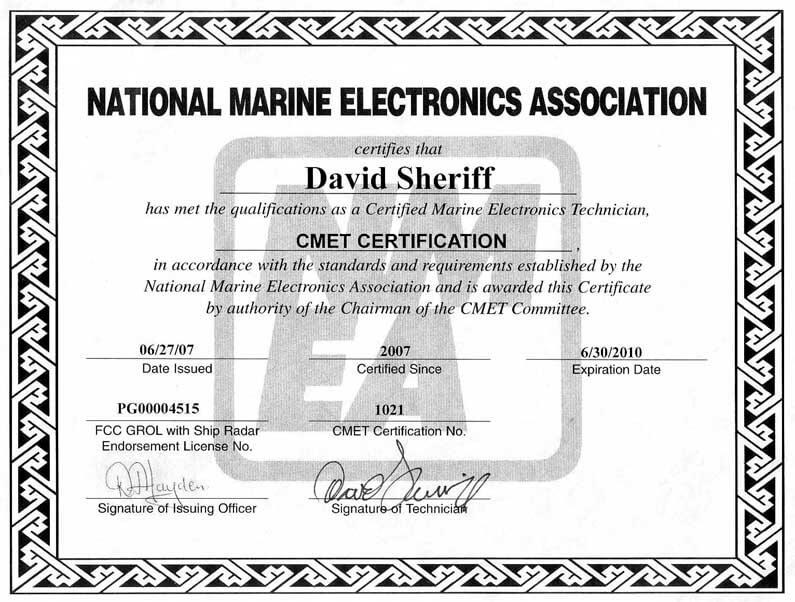
There are many steps that you must take when searching for a career in diesel mechanics. It is highly recommended to earn a CDL, or an associate degree, in diesel mechanics. However, you should also get hands-on experience. National Institute for Automotive Service Excellence, (ASE) offers certification exams for diesel mechanics. These certifications will demonstrate your knowledge in diesel mechanics. This can lead you to better salaries and specialty jobs. You should keep taking certification exams until master status if you are interested in a career as an diesel mechanic. You will be granted more opportunities and a higher salary once you reach master status.
Earning a CDL
Although the trucking industry can be a lucrative career, becoming a diesel technician requires a CDL. Anyone who has ever worked on a commercial truck knows how vital a diesel engine is. Diesel engine helped the industry to continue moving through the recent pandemic. The industry was dependent on diesel mechanics, who were often not available for drivers.
If you're looking for a career as a diesel mechanic, you should consider earning an associate's degree. This degree requires courses in science, math, and business. Some employers may require certification by National Institute of Automotive Service Excellence. You can apply for jobs in companies that require certification after you have earned your degree. This certification will make you stand out from other job candidates.

Earning an associate degree
Being a diesel mechanic requires strong people skills. You'll need to be capable of translating complex technical concepts into simple language. Also, you must communicate clearly your findings with customers and clients. Diesel-powered vehicles are extremely complex and intricate. A single loose wire or missing bolt could have devastating consequences. This is why you need to have a keen eye and a keen sense of detail.
Before beginning your education, it is important to know the requirements for this career. The minimum requirement is usually a high school diploma. A GED may also be acceptable, but you may not be able to find a high-paying job unless you have completed an associate degree. You can also take a certificate program offered by a trade school to further your education. A certification will give mechanics an edge over those with less formal education.
Earning a certificate
Although a certificate in diesel mechanic is not necessary to start working in this field it can help you get an entry-level job. Although entry-level roles don't typically involve complex tasks, these certificates can help improve your skills to land a job as a fulltime employee in the future. These entry-level positions allow you to gain hands-on experience, and can help you differentiate yourself from other workers in your field. For those who are uncertain about their future or want to have a more secure career, a certificate is highly recommended.
After earning a certificate, many people choose to work in diesel repair. This type of certification is widely accepted by employers, and you may be eligible for higher-level positions once you complete your training. While you will not earn a full-time salary until you get several years of experience, you can start a career as a diesel technician and improve the lives of others. You might also consider an Associate in Applied Science degree if you are interested in a more senior position.

Getting hands-on experience
A certificate in diesel mechanic training is a good option if you are interested in learning more about large trucks and machinery. The National Center for Construction Education and Research offers resources and assistance to credentialed individuals that will help them pass the assessment. In addition, the program offers hands-on training with real vehicles and enables you to learn from actual professionals.
Diesel mechanics work on heavy vehicles, including semitrucks and buses that transport goods across the country and people. Many machines and vehicles also use diesel technology. They typically use pneumatic tools, hand tools, and power machine tools to repair and maintain these vehicles. Some technicians use computers to diagnose and repair problems. To make repairs, they also use hand tools as well as computerized equipment. This job requires a lot of standing, crawling, and walking. They also have to be exposed to all weather conditions.
FAQ
How long does it take to become a good mechanic?
You need to have years of experience and practice before you can become a master mechanic. The best way to learn how to repair cars is by working under the supervision of a professional mechanic.
You will need to spend some time in a garage to learn as much about cars and mechanics as possible. Mechanical engineering books will be required to learn about mechanics and design.
Additionally, you will need to attend an auto school.
It is important to get started early. Don't wait until you're older to begin studying automotive technology. Get started now if you are interested in becoming a mechanic.
Is it easy to get a job as an automotive mechanic?
Yes, it's possible. Many garages list their vacancies online. Many people simply apply for the fun of it. If you want to get your foot in the door, you should try applying for a few places and see if they accept student applications. If you don't know anyone working in the industry, ask your friends and relatives. You might be able to refer someone.
Is it worthwhile to become a mechanic?
The answer depends on what you are looking for in life. If money is your goal, then you can answer "yes". But if you are searching for meaning and purpose, then you should not answer this question.
You don't need to be a mechanic if you don't know how. It won't make you wealthy. It's unlikely that you will be famous. It is unlikely that you will be made famous.
You'd need to spend years learning how everything works. Then you'd still have to pay someone else to fix your car when it breaks down. That's why most people don't bother doing it at all. They find something else to do.
In conclusion, if money is your main goal, you should go ahead. If you are looking for a fulfilling life, however, then stay clear of the mechanics' industry.
Statistics
- There were 749,900 jobs available for automotive service technicians and mechanics in 2016, which is expected to grow by six percent through 2026. (jobhero.com)
- Apprentice mechanics earn significantly less hourly than mechanics who have completed training, with a median wage of approximately $14.50 an hour, according to PayScale. (jobhero.com)
- 52% of Mechanics in the United States think their salaries are enough for the cost of living in their area. (indeed.com)
External Links
How To
How to become an automotive technician
A technician who works on vehicles is an automotive technician. He/she is employed at automobile dealerships, garages, service centres, and auto shops. He/she assists customers in fixing their cars, trucks or motorcycles. An automotive technician must be capable of diagnosing problems and making repairs safely, accurately and efficiently.
To become an automotive technician, a person must first earn an associate's degree from a vocational college. After completing the program, he/she must take the National Institute for Automotive Service Excellence certification exam. ASE stands for American Society of Mechanical Engineers. Two sections make up the ASE certification examination. The first section tests for mechanical knowledge, the second for practical skills. To take the test, you must visit one of the approved testing locations. These locations are available online or through your local automotive dealer.
After passing the test, a candidate must pass a state examination before becoming licensed as an automotive technician. The process will vary depending on where an applicant lives. Some states require that candidates attend training courses, while others permit them to learn independently. Some states require technicians to be licensed immediately upon receiving their license. Other states wait until they have been employed as automotive technicians for at least six month.
An applicant should apply to a local auto shop in order to start their career as an automotive technician. Most new employees begin as apprentices once they are hired. Apprenticeships last for three years. The apprenticeship program teaches students how to change oil, adjust brakes, replace tires, clean spark plugs, inspect engine compartments, and perform routine maintenance. Some students learn how to do advanced repairs, such as installing air filters, replacing shocks, repairing engines, and replacing transmission fluids. Many schools offer classes during regular hours. Some schools also offer evening classes when needed.
Once a student finishes his/her apprenticeship, it is possible to become a Journeyman. Journeymen usually spend four to five year learning how to install major systems like transmissions, differentials steering gear, suspensions, drive shafts, and steering gear. They learn how to do complex repairs such as remanufacturing engines, rebuilding transmissives, and troubleshooting electronic components. Many employers prefer to hire Journeymen because they understand the job well.
If a candidate successfully passes the required exams and receives a license, he/she might want to consider starting his/her own shop. According to the Bureau of Labor Statistics in 2010, nearly 1.7 Million automotive mechanic jobs were available. The Bureau of Labor Statistics predicted that this number would rise by 18% from 2009 to 2020. Candidates who decide to open their own business should be prepared to invest thousands in equipment and supplies.
Automotive technicians' salaries depend on many factors such as the employer, whereabouts, education level and experience. On average, an unemployed person could earn $20,000 annually. Someone who has only a highschool diploma could earn around 21,000 dollars per year. A bachelor's degree is equivalent to approximately $24,000 annually. Technicians with a bachelor's degree earn about $27,000 per annum. Masters' degree holders earn around $32,000 per annum. Salaries are increasing so that a professional earning less than $30,000 could expect to make $40,000 in a few years.